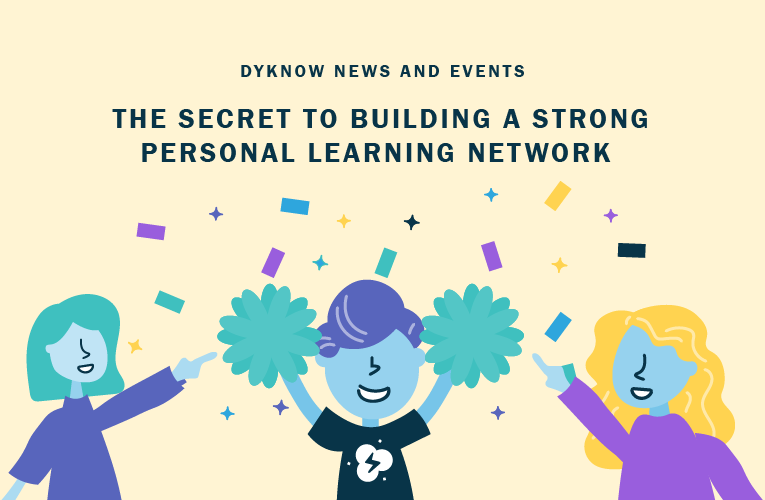Personal learning networks, also known as PLNs, are one of the easiest and most effective ways to gain valuable insight and free information to help you in your K-12 education role. When reaching for a goal, having a support system makes the process go by much faster and overall is a lot more fun. Building a diverse community of people with similar interests and goals has never been easier in a day and age like today.
With the ability to be connected right at our fingertips, technology has transformed the boundaries in which we can communicate. We sat down with Tara Martin, an enthusiastic educator, speaker, and author, to hear her secrets to building a strong personal learning network.
How Tara Martin Found Her Personal Learning Network
Tara Martin began her personal learning network journey after attending a conference where she discovered how many of her peers were using social channels like Twitter to stay connected.
She felt like she was missing out on something huge because she wasn’t on social media platforms like Twitter. During an interactive session, Tara learned how to find people with similar interests to follow so that she could get connected with different learning communities.
Tara became increasingly interested in finding out more about instructional technology coaches on Twitter. At this time she felt isolated in her role as a coach and wanted to get inspired by finding people who were in the same role but doing creative and innovative things that she could learn from.
After 4 years of growing her PLN, Tara shared that her personal learning network consists of over 40,000 people. Just 4 years ago, she had no idea that a world like Twitter existed for educators to connect with each other, and now Tara has a huge network of people behind her who she calls her professional learning family.
How Tara Built a Strong Personal Learning Network
Building your personal learning network won’t always be easy, so you have to be strategic about who you are engaging with. She based her book Cannonball In off a true-life story about learning to swim.
Tara’s father taught her to swim when she was young and as she learned she so badly wanted to just cannonball into the pool, but she was too scared. When Tara finally got the courage to do a cannonball, the girls judging the cannonballs on the side of the pool tore her down.
“The cannonballers,” as tara refers to them as are the ones who are taking risks and learning from mistakes. “The dabblers,” are like the girls who judged the cannonballs; they watch and judge but don’t participate. Tara shared that you have to engage with “the cannonballers,” those who are thinking outside of the box and sharing their forward-thinking on social media.
Engage with these educators so that you can implement similar creative ideas in your own classroom. With more and more educators entering the social realm to stay connected, the opportunities to find your voice and showcase the amazing things you do in the classroom are always increasing. So what’s the secret?
1. Join twitter chats
Education chats on twitter happen all the time. Follow hashtags like #edchat and #AcademicChatter to join in.
2. Follow accounts with similar interests
Get your foot in the door by following people who share out posts that spark your interest. You will be able to find more people with similar interests from that initial person.
3. Like, repost, comment
Engage with the community to show them you care and are interested in what they have to share. Build connections and start conversations by liking, reposting, and commenting on posts.
4. Post your own content
Eventually, posting your own content can be the best way to continue to grow your PLN and encourage users who have just joined, to be a part of something larger than just education.
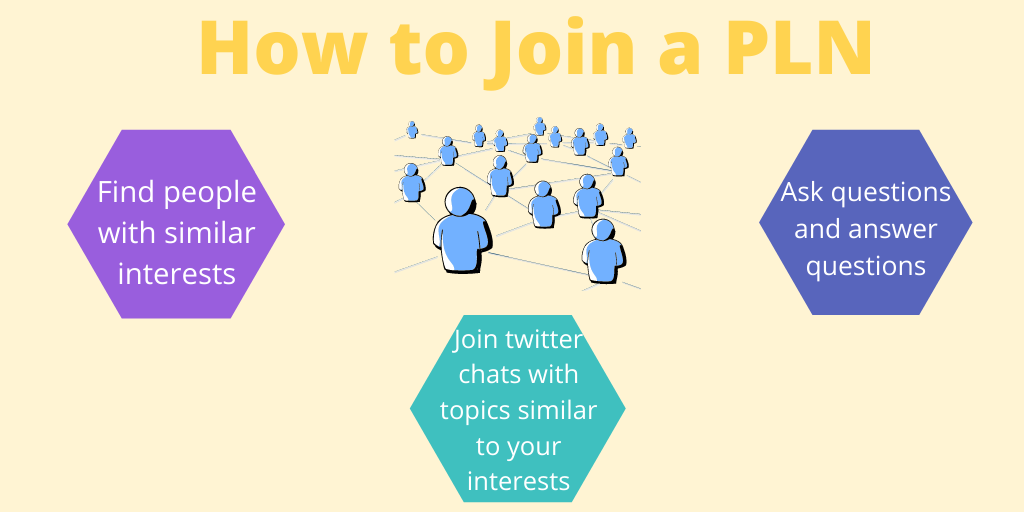
Tara said she became overwhelmed with how much information she could consume just from Twitter. As she began to join Twitter chats she rapidly saw that people were answering her questions, liking her answers, and enjoying the content she was producing.
In such a short amount of time, Tara had a large community of people outside of her immediate education world who are able to share new ideas and give a new perspective to old views. She explained that “A professional learning network sheds light on new things and ultimately makes the lives of those around them (students, teachers, etc.) better.” Tara saw her success reflect those who are a part of her personal learning network.
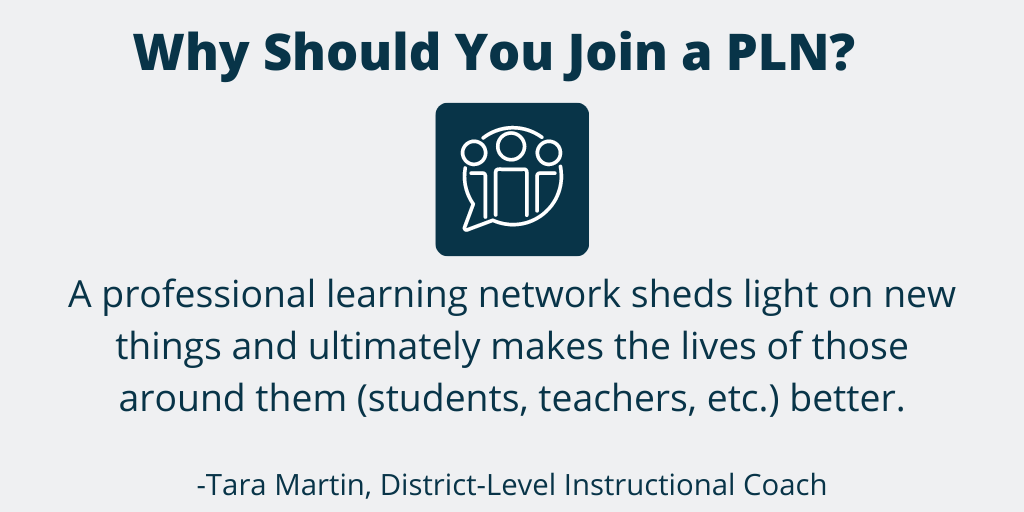
If you are having a hard time finding the right PLN or wanting a safe place to start out, you can follow Tara on Twitter (@TaraMartinEDU) and join Dyknow’s Tech Coach Con personal learning network on Facebook! Start a conversation today!
Listen to the full conversation with Tara Martin on out Tackling Tech Podcast!
This week Brett talks to Tara Martin, an educator, admin, coach, speaker, author, and founder of BookSnaps. Tara explains what being “R.E.A.L.” means and how to be REAL while using technology during remote learning. She wrote a book called “Cannonball In,” about her philosophy in life.
Start teaching confidently with Dyknow for free!
Latest blog articles
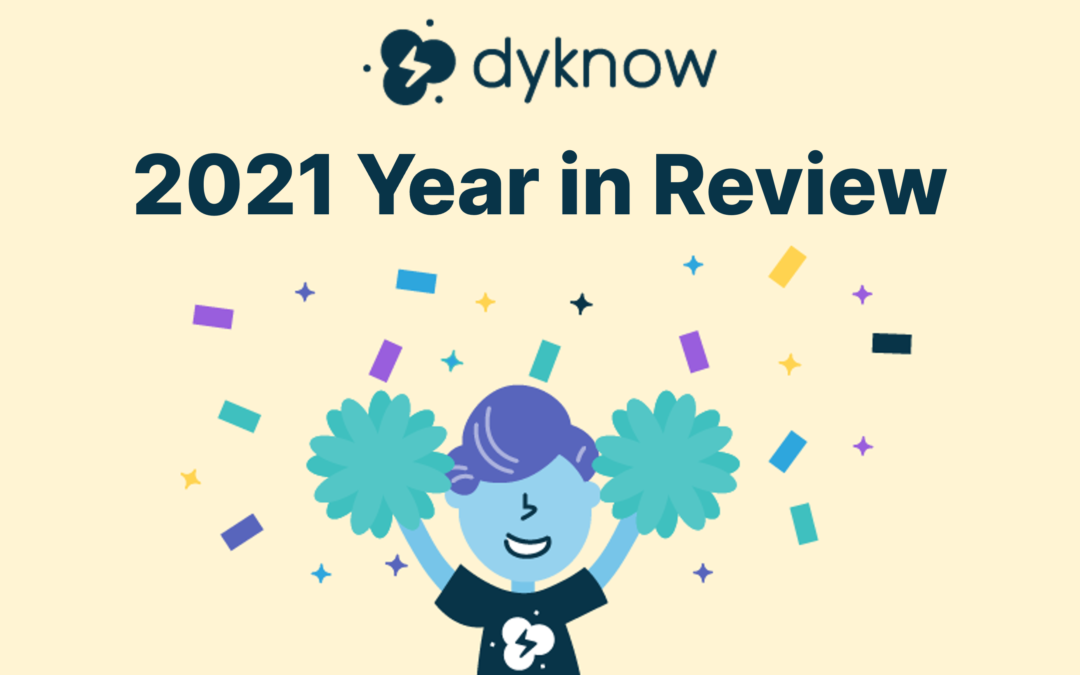
Dyknow 2021 Year In Review
In addition to web browser updates and bug fixes, Dyknow released several major product updates, new features and enhancements. Check out Dyknow’s 2021 Year in Review!
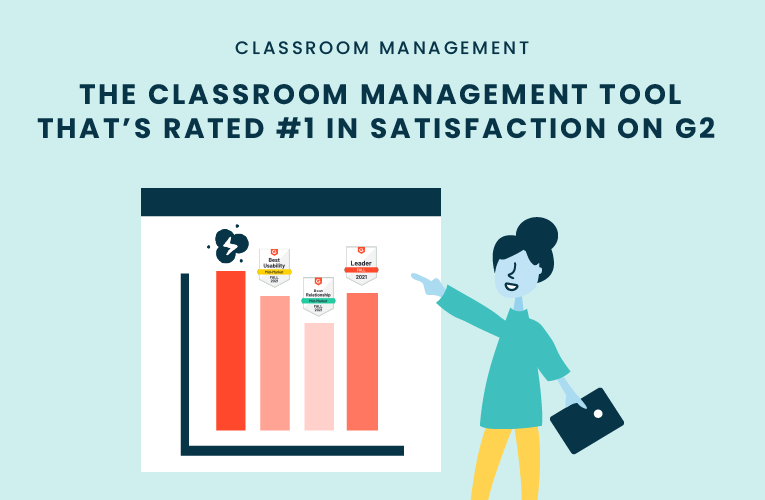
The Classroom Management Tool that’s Rated #1 in Satisfaction on G2
K-12 Administrators across the world trust G2 as the #1 platform to find, research, and choose EdTech tools that solve the most pressing problems their teachers are experiencing. In G2's Fall 2021 Reports, Dyknow was once again rated #1 in overall Satisfaction out of...
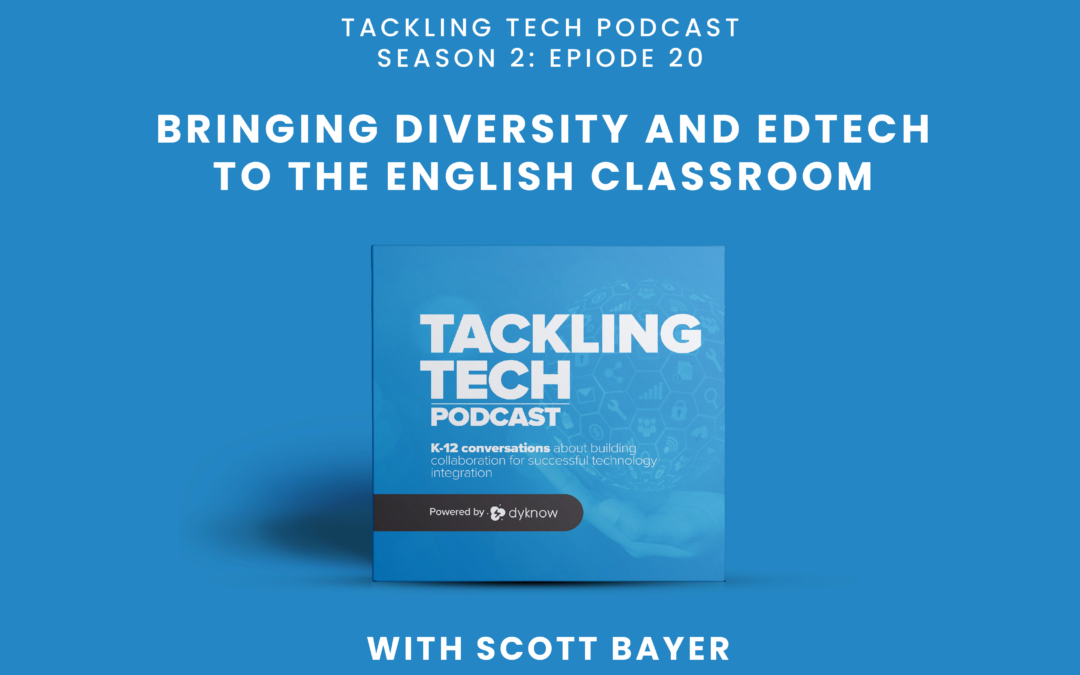
Bringing Diversity and EdTech to the English Classroom
On this episode of Tackling Tech, Tierra Leustig interviews Scott Bayer about being an anti-racist teacher, diversifying reading lists, creating inclusive learning environments, and leveraging ed-tech in non-technical ELA classrooms. Scott Bayer is a High School...

